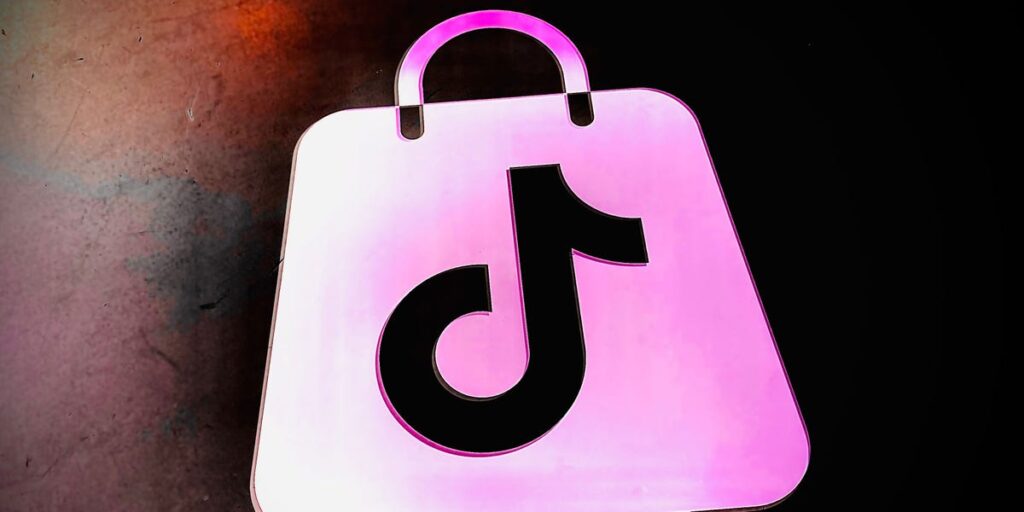- TikTok made e-commerce a priority, even when it angered some users. It paid off.
- It’s made big bets on influencer affiliates, live selling, and other in-app features.
- Its popularity with young shoppers signals where e-commerce is heading next.
When TikTok first introduced shopping videos in the US, many users were skeptical.
People don’t want to buy stuff on TikTok, they want to watch funny videos, some said. And who wants to hand over their credit card details to an app that Congress says is a national security risk?
TikTok’s response to the haters: Add more e-commerce features. As competitors pulled back on shopping, TikTok leaned in. And it’s paid off.
TikTok Shop had driven around $1 billion in monthly sales in the US since July, The Information reported in October. It grossed $100 million in single-day sales on Black Friday alone, triple its 2023 haul.
“We’ve now been on TikTok Shop since the very beginning, and we’ve seen successes gradually and consistently increase month over month,” Max Benator, CEO of the TikTok Shop partner agency Orca, told Business Insider. “The numbers are serious.”
Read: How TikTok Shop popularized social shopping in the US
TikTok first began dipping its toes into US e-commerce as early as 2020 when it added a tool for creators to add shopping buttons to videos that linked to Shopify and merchandise storefronts. It later released a full e-commerce product, Shop, to a select group of US beta testers in November 2022 after experimenting in other markets like the UK.
From there, it quickly built up a large team of US-based TikTok Shop staffers to handle everything from marketplace quality to merchant onboarding. It enlisted hundreds of third-party vendors to teach brands and creators how to sell products on social media. It launched its own logistics and fulfillment operation, as well as an e-commerce app store. More recently, it’s beginning to connect creators with manufacturers to make their own products.
Unlike some competitors that focus on specific areas of the e-commerce business like live shopping or affiliate marketing, TikTok offers all pieces of social commerce in one place. It’s trying to be Amazon, Shopify, and, well, TikTok at the same time. And it’s working.
By some measures like repeat purchases, TikTok Shop is already beating out competitors like Walmart, and creeping up on Amazon. It’s shown particular strength among young shoppers, which could pose a risk for Amazon and other big retailers down the road.
TikTok Shop has worked through some of its early hiccups, such as technical issues with its marketplace quality enforcement. But it still has some real obstacles it needs to overcome. The platform’s greatest strength — its ability to make products go viral through influencer content — also creates unpredictability for sellers who face sudden spikes or drops in TikTok Shop sales.
“Just because a product goes viral doesn’t mean the whole brand goes viral,” Julian Reis, CEO of the e-commerce firm and TikTok Shop partner SuperOrdinary, told BI in July. “What we see is that that product will go viral and it could potentially sell millions of dollars and the rest of the brand is left behind.”
Read: TikTok is hell-bent on growing Shop, but its viral spurts could be hiding a key weakness
TikTok Shop could also have the rug pulled out from under it if the app ends up getting banned in January, as mandated by a law passed by Congress.
And the platform remains a tiny piece of the overall US e-commerce business. While it pulled in $100 million in sales on Black Friday, that was a small fraction of the $10.8 billion total US online sales that day, per Adobe Analytics.
Amazon is probably not quivering in its boots when it sees TikTok’s current sales. But it’s also not ignoring TikTok’s rapid rise and potential future growth, which signal where consumer habits are heading next. Amazon has responded by adding its own TikTok-like feed, and investing in influencers and live shopping, for example.
Business Insider has been tracking TikTok’s e-commerce efforts.
Here’s a breakdown of our recent coverage:
Influencers and TikTok Shop:
Merchants and TikTok Shop:
Live shopping:
Fulfillment, logistics, and e-commerce tech:
Holiday shopping:
Read the full article here


